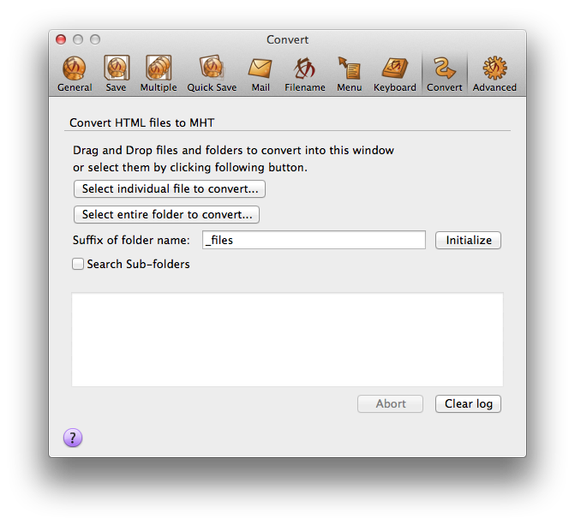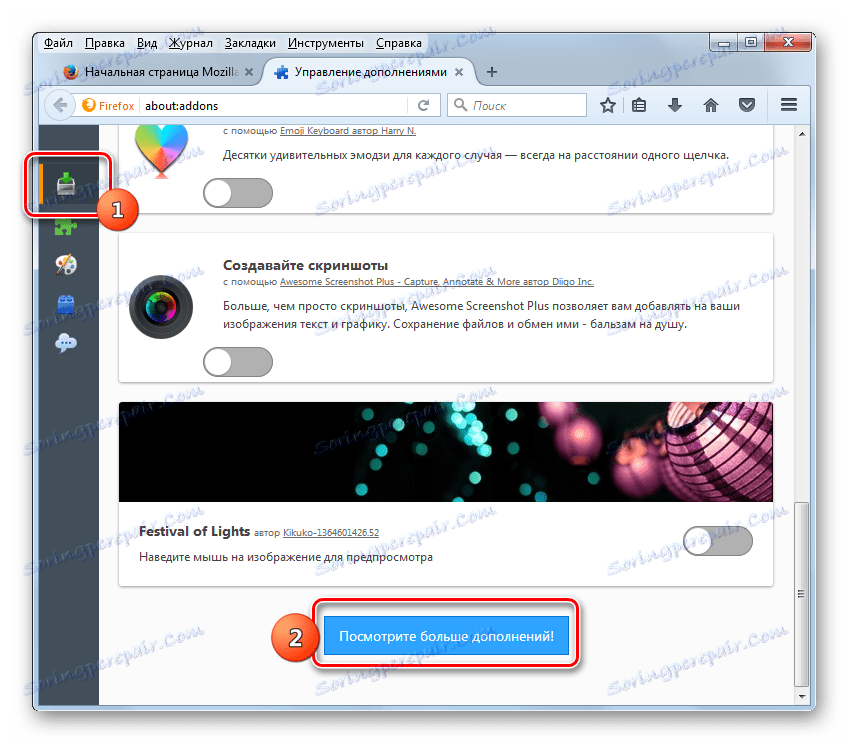| ↑↑↑ Home | ↑↑ UNIX | ↑ Updateware |
There's an open-source perl tool called unmht which should do the job: The first HTML file in the archive is taken to be the primary web page, the other contained files for 'page requisites' such as images or frames. Unmht is an unpacker for MIME HTML (.mht /.mthml) archives. I wrote it because mht-rip did not work for me, because mht-rip and the mhtconv seemed inactive for some time, and because Perl makes programming this kind of thing ridiculously easy.
unmht is an unpacker for MIME HTML (.mht / .mthml) archives. I wrote itbecause mht-rip did not work for me,because mht-rip and the mhtconvseemed inactive for some time, and because Perl makes programming this kind ofthing ridiculously easy.
unmht saves all except the primary HTML file to a subdirectory and rewritesHTML links to point to the saved files for offline viewing.
Get unmht: Download
unmht has the following Perl module dependencies:HTML::PullParser,HTML::Tagset, MIME::Base64,MIME::QuotedPrint andGetopt::Long.After checking you have these (try perldoc HTML::PullParser etc.), putunmht somewhere in your path and extract the manual page withpod2man unmht > /usr/local/man/man1/unmht.1 (or similar).

unmht's manual page
unmht - Unpack a MIME HTML archive
unmht unpacks MIME HTML archives that some browsers (such as Opera) save by default. The file extensions of such archives are .mht or .mhtml.
The first HTML file in the archive is taken to be the primary web page, the other contained files for 'page requisites' such as images or frames. The primary web page is written to the output directory (the current directory by default), the requisites to a subdirectory named after the primary HTML file name without extension, with '_files' appended. Link URLs in all HTML files referring to requisites are rewritten to point to the saved files.
Print a brief usage summary.

Unmht Firefox

List archive contents instead of unpacking. Four columns are output: file name, MIME type, size and URL. Unavailable entries are replaced by '(?)'.
If the argument ends in a slash or is an existing directory, unpack to that directory instead of current directory. Otherwise the argument is taken as a path to the file name to write the primary HTML file to. If the output directory does not exist, it is created.
http://www.volkerschatz.com/unix/uware/unmht.html
http://www.loganowen.com/mht-rip/
http://sourceforge.net/projects/mhtconv/
unmht is Copyright (c) 2012 Volker Schatz. It may be copied and/or modified under the same terms as Perl.
| ↑↑↑ Home | ↑↑ UNIX | ↑ Updateware |
unmht is an unpacker for MIME HTML (.mht / .mthml) archives. I wrote itbecause mht-rip did not work for me,because mht-rip and the mhtconvseemed inactive for some time, and because Perl makes programming this kind ofthing ridiculously easy.
unmht saves all except the primary HTML file to a subdirectory and rewritesHTML links to point to the saved files for offline viewing.
Get unmht: Download
unmht has the following Perl module dependencies:HTML::PullParser,HTML::Tagset, MIME::Base64,MIME::QuotedPrint andGetopt::Long.After checking you have these (try perldoc HTML::PullParser etc.), putunmht somewhere in your path and extract the manual page withpod2man unmht > /usr/local/man/man1/unmht.1 (or similar).
unmht's manual page
unmht - Unpack a MIME HTML archive

unmht unpacks MIME HTML archives that some browsers (such as Opera) save by default. The file extensions of such archives are .mht or .mhtml.
The first HTML file in the archive is taken to be the primary web page, the other contained files for 'page requisites' such as images or frames. The primary web page is written to the output directory (the current directory by default), the requisites to a subdirectory named after the primary HTML file name without extension, with '_files' appended. Link URLs in all HTML files referring to requisites are rewritten to point to the saved files.
Print a brief usage summary.
List archive contents instead of unpacking. Four columns are output: file name, MIME type, size and URL. Unavailable entries are replaced by '(?)'.
Unmht Download
If the argument ends in a slash or is an existing directory, unpack to that directory instead of current directory. Otherwise the argument is taken as a path to the file name to write the primary HTML file to. If the output directory does not exist, it is created.
http://www.volkerschatz.com/unix/uware/unmht.html
http://www.loganowen.com/mht-rip/
http://sourceforge.net/projects/mhtconv/
Unmht Addon Firefox
unmht is Copyright (c) 2012 Volker Schatz. It may be copied and/or modified under the same terms as Perl.
